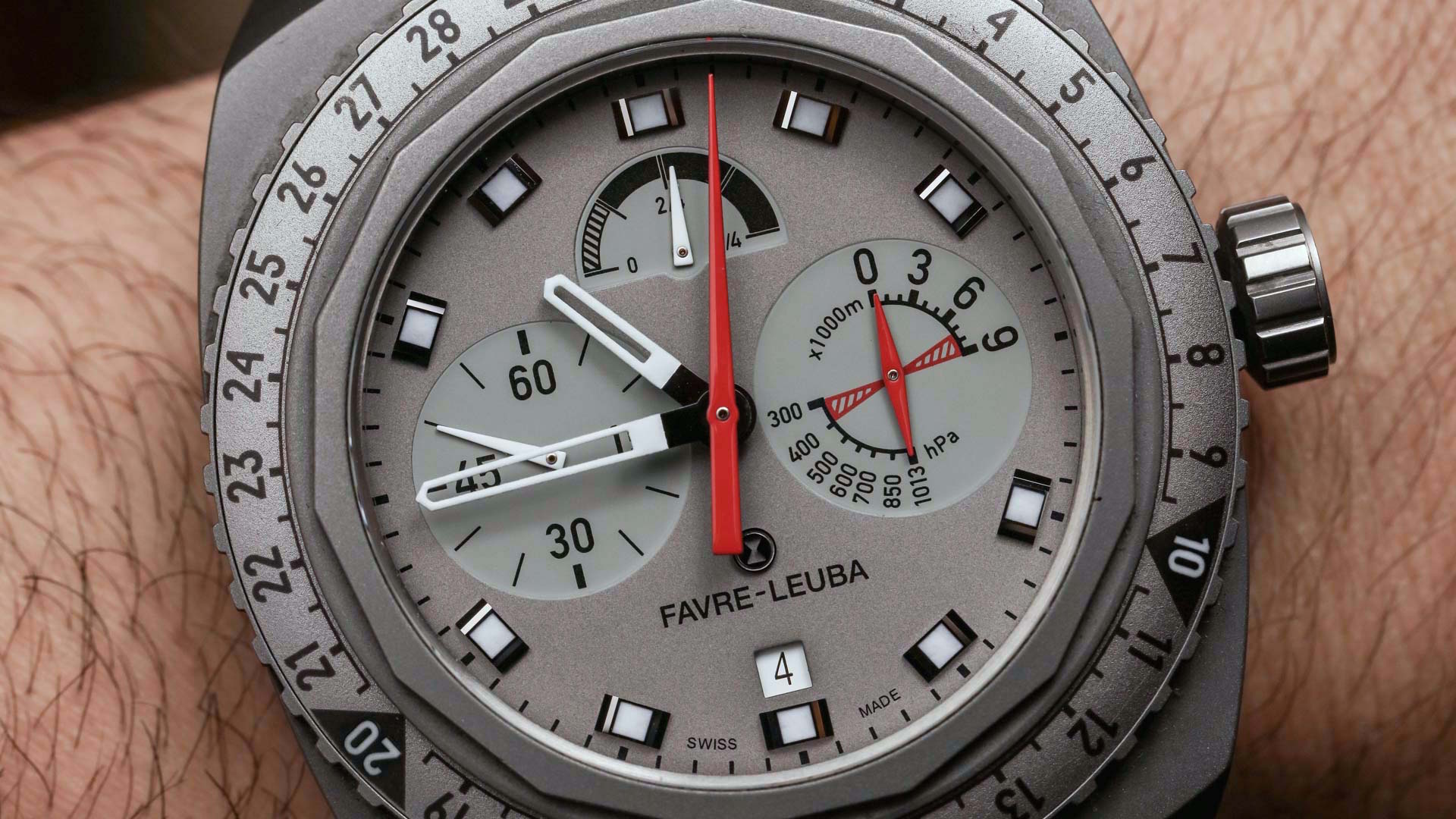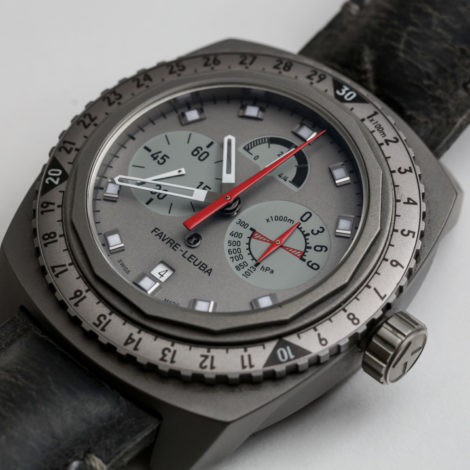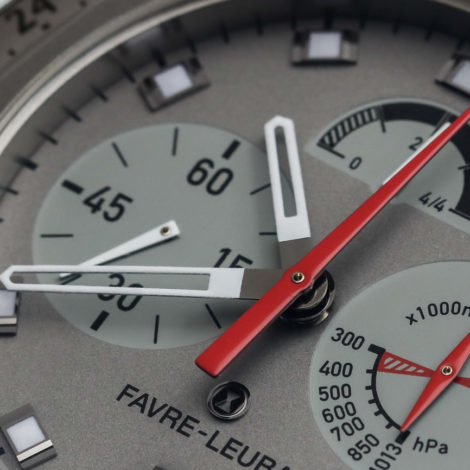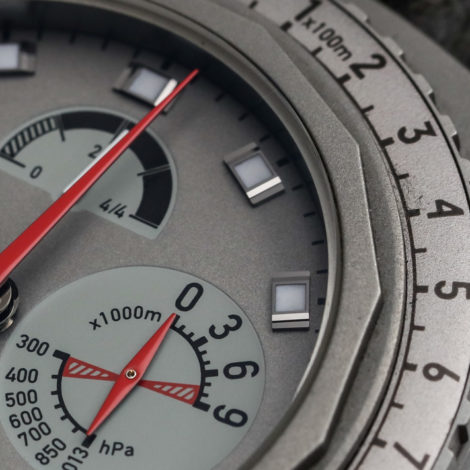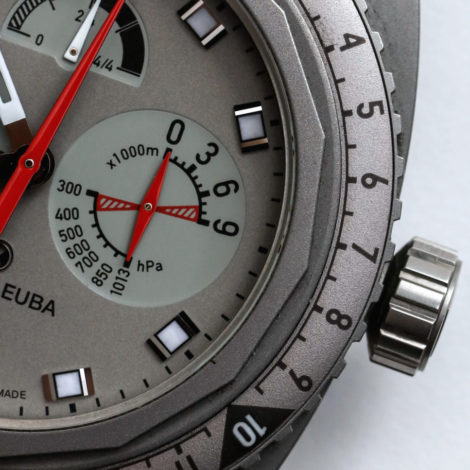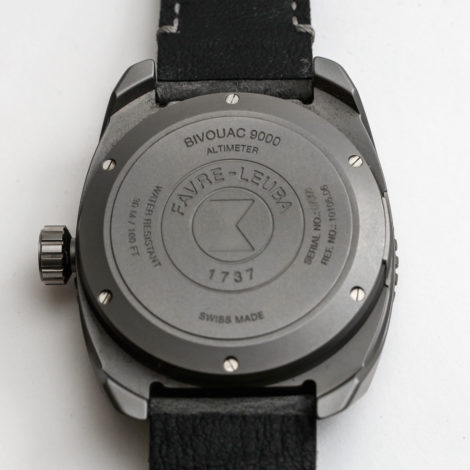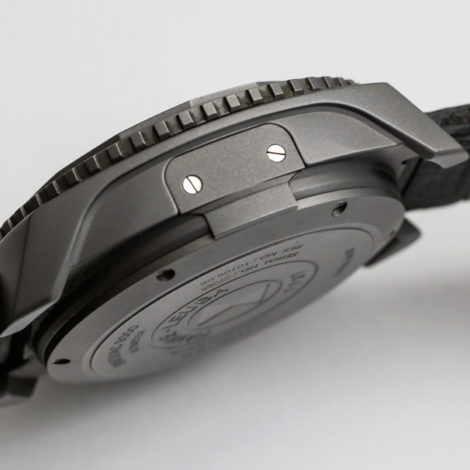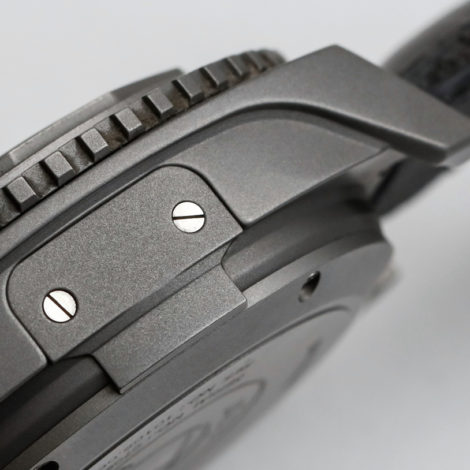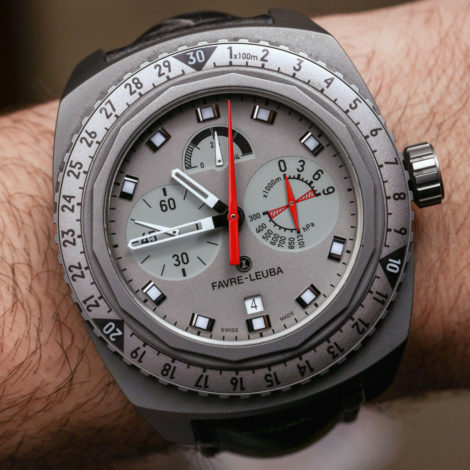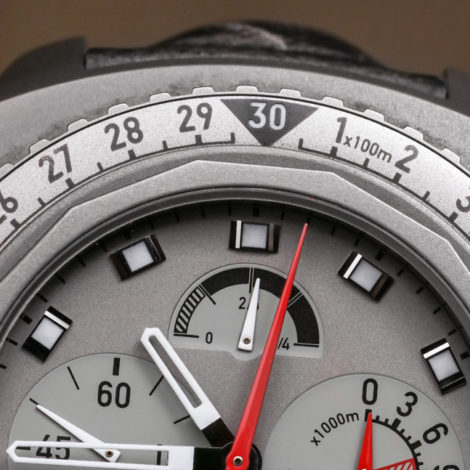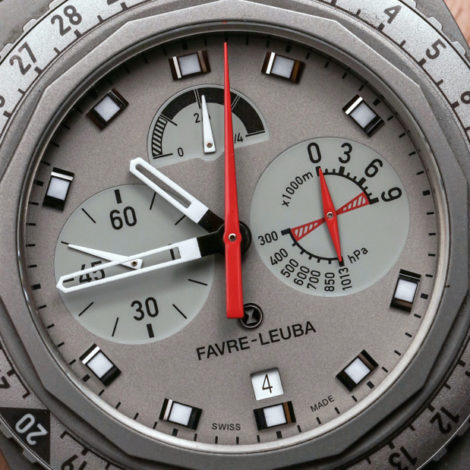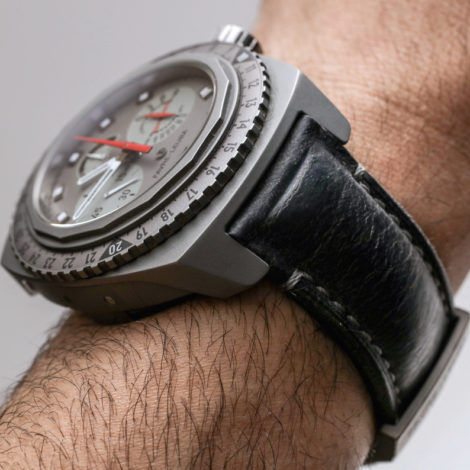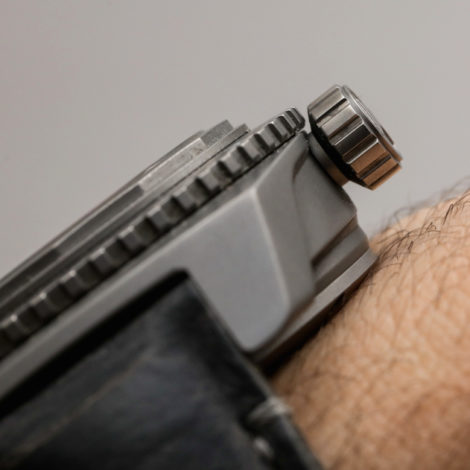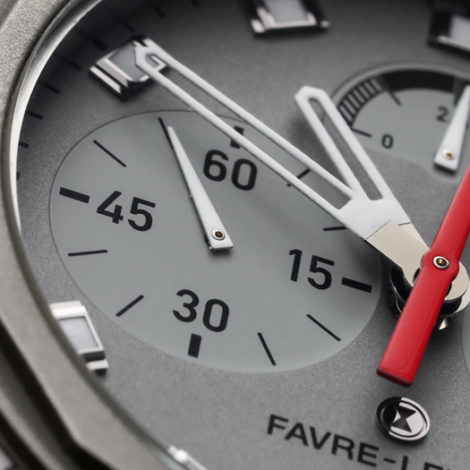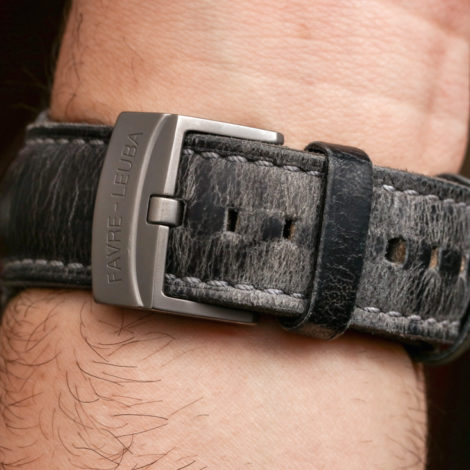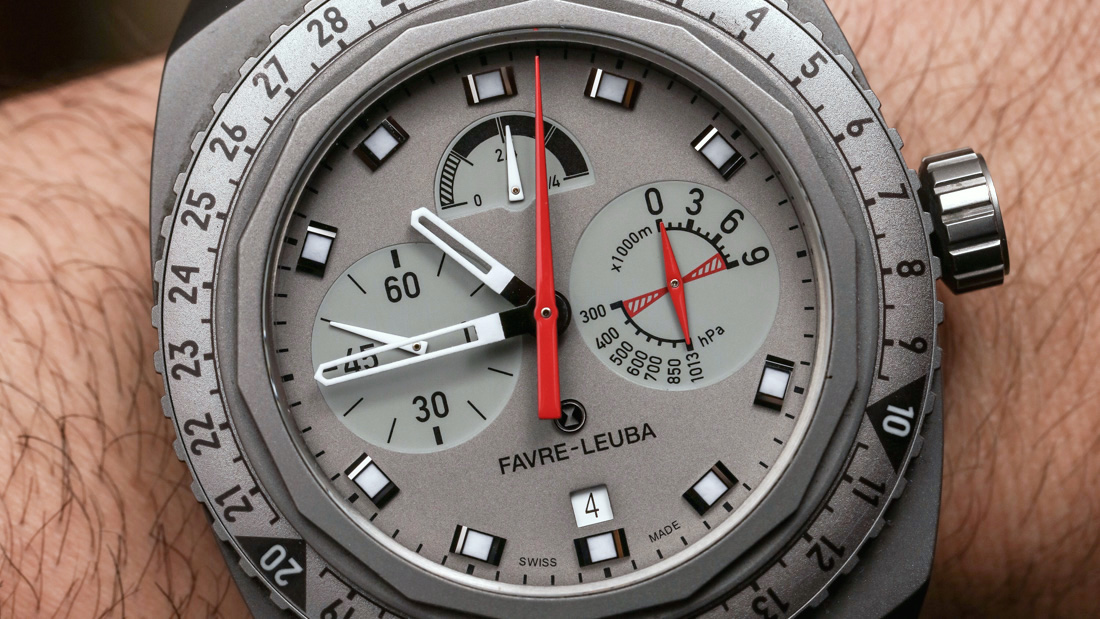
Watches that do things other than just tell the time hold a special place in the hearts of many timepiece collectors. The Favre-Leuba Raider Bivouac 9000 (reference 00.10105.06.45.45) is a great example, as it combines both a mechanical watch movement and a mechanical altimeter. The funny thing is that most of those “accessory” features in watches – while entirely functional and reliable – have difficulty applying to many real-world situations today. This is further reinforcement of the notion that we want luxury watches (and tools) for their emotional value as well as their functional value. I say all this because this is a review of a watch with a useful piece of functionality that while more “satisfying” in mechanical form, isn’t necessarily more useful than its more modern digital counterparts… and yet we still want it.
A watch with an altimeter built into it is designed (of course) to indicate your current altitude. All mechanical barometer or altimeter watches work in essentially the same way using historic technology which has been miniaturized into wristwatch form. Both altimeters and barometers more or less measure the same thing using what is known as an aneroid capsule. In fact, this technology is also what makes something like the Jaeger-LeCoultre Atmos clock work. Aneroid capsules are like small metal accordions which expand and contract based on air pressure due to the placement of sensitive gasses on the inside. Knowing in advance how wide or narrow the body of the aneroid capsule is allows a measurement hand to accurately indicate your current altitude or barometric pressure. Because analog watch dials are understandably crowded, such watches typically focus on one measurement type. In this instance it is altitude.
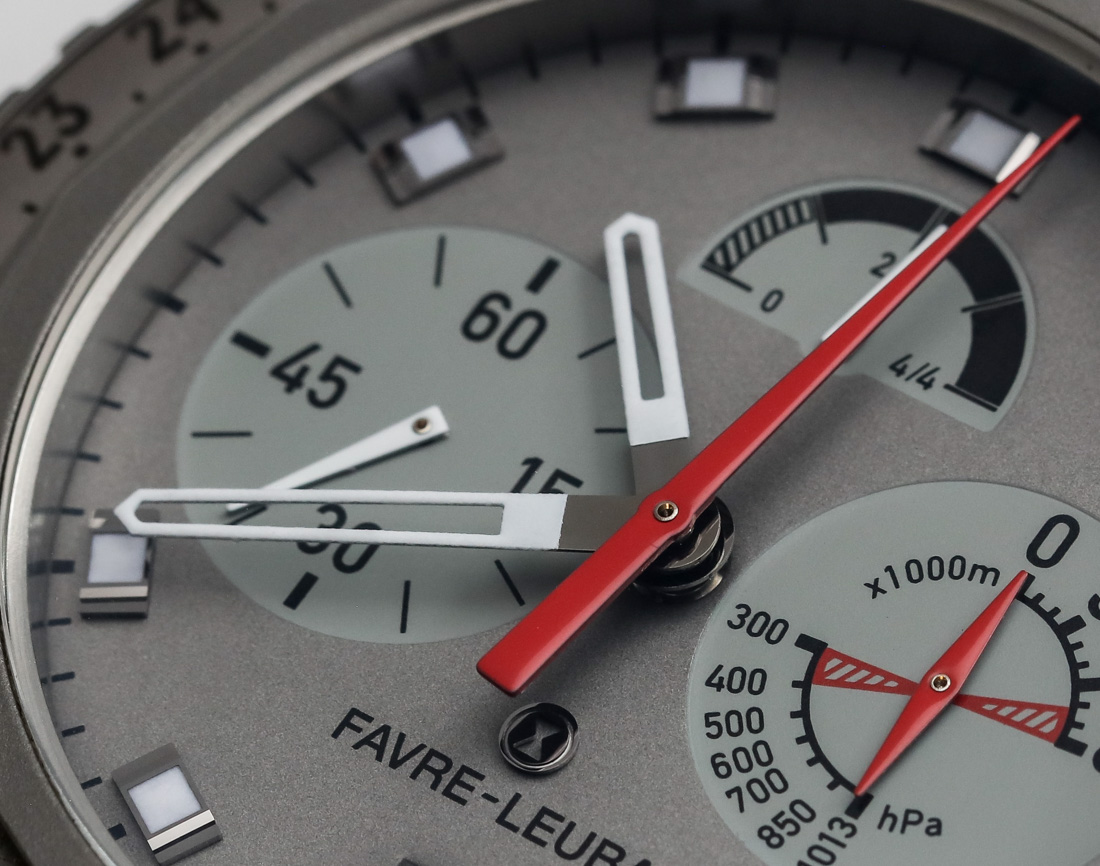
Favre-Leuba produced mechanical altimeter watches in the past and the Raider Bivouac 9000 is in that way a sort of modern re-release. It has a sibling watch model known as the Favre-Leuba Raider Bathy 120 Memodepth (aBlogtoWatch hands-on here), that is a very similar watch but with a depth gauge as opposed to an altimeter. Both watches are very similar in that they share the same base movement, case style, similar dimensions, and a similar dial style concept. The Raider Bathy 120 Memodepth is more expensive because it has 200m versus 30m of water resistance – and a maximum depth memory hand.
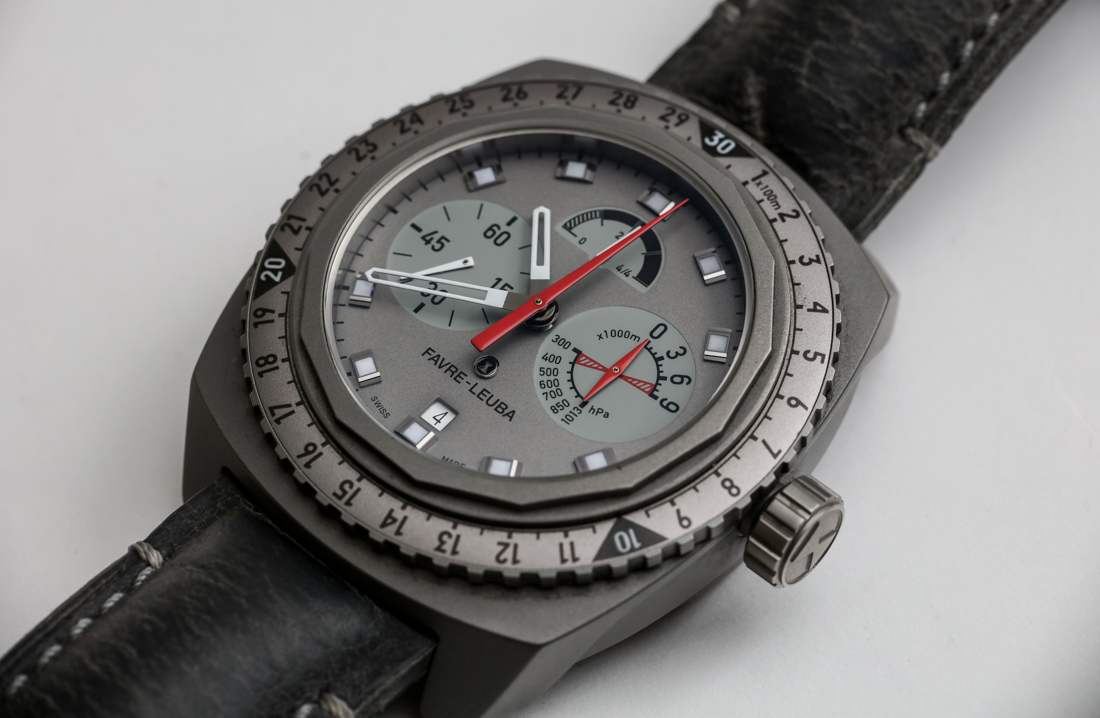
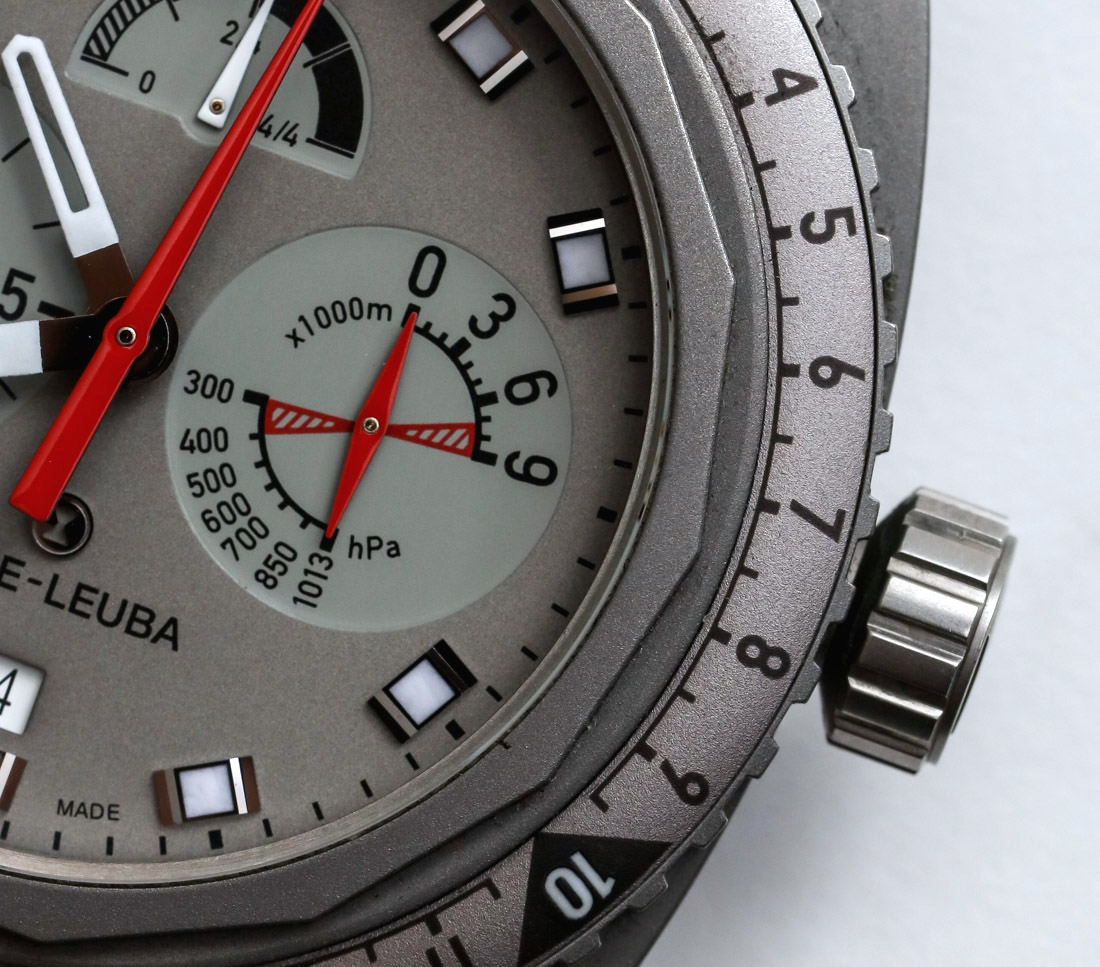
Even though diving is a more common adventure theme for watches than climbing, I think the Raider Bivouac 9000 is a more interesting proposition from the brand. There just aren’t that many mechanical altimeter watches out there. The last one I spent time with was the Oris Big Crown ProPilot Altimeter. While the Oris was clearly aviation themed, the Raider Bivouac 9000 is climbing and adventure themed. Basically, it is an ideal mechanical watch for anyone going on any serious mountain treks. To test the durability of the Bivouac 9000, Favre-Leuba made sure it was worn on a few really high summits, including an ascent high up on Mount Everest. This testing is actually quite salient because in addition to needing to accurately measure altitude, in such scenarios a watch needs to put up with extreme cold and ice (and I understand the Raider Bivouac 9000 did just fine).
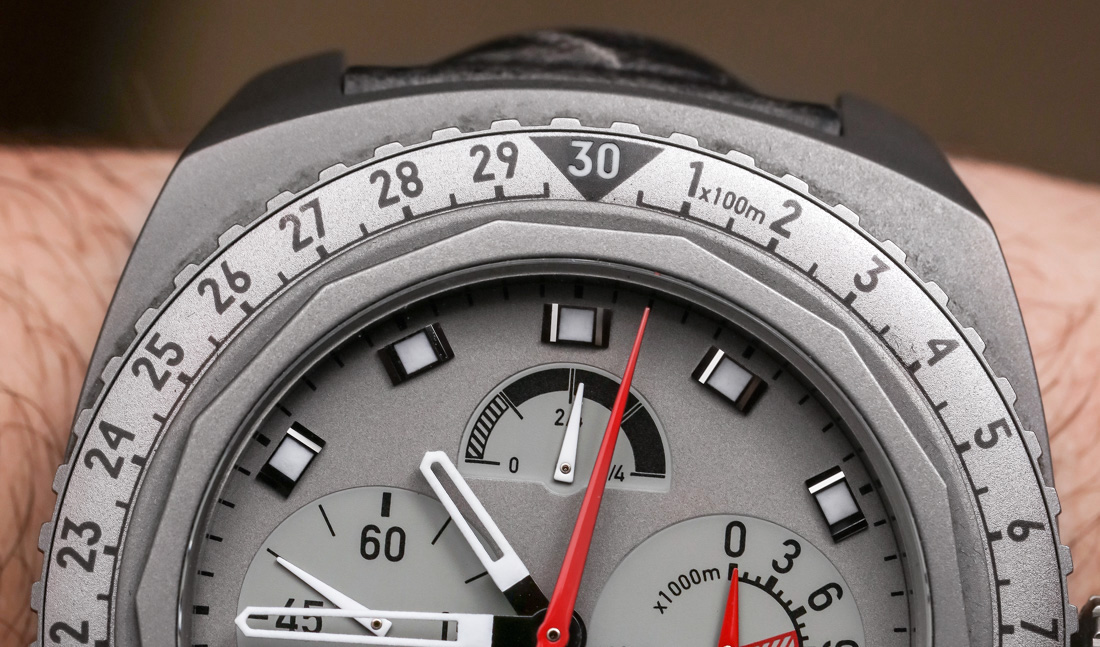
That large red altitude hand is easy to spot and read at a glance when you are checking your altitude. When you aren’t… the big red hand sort of gets in the way of showing your current time. Thus, for most types of city adventuring, while you have the neat look of an altimeter on your wrist, personally viewing it might be a bit less on the exciting side because your altitude probably isn’t changing much.
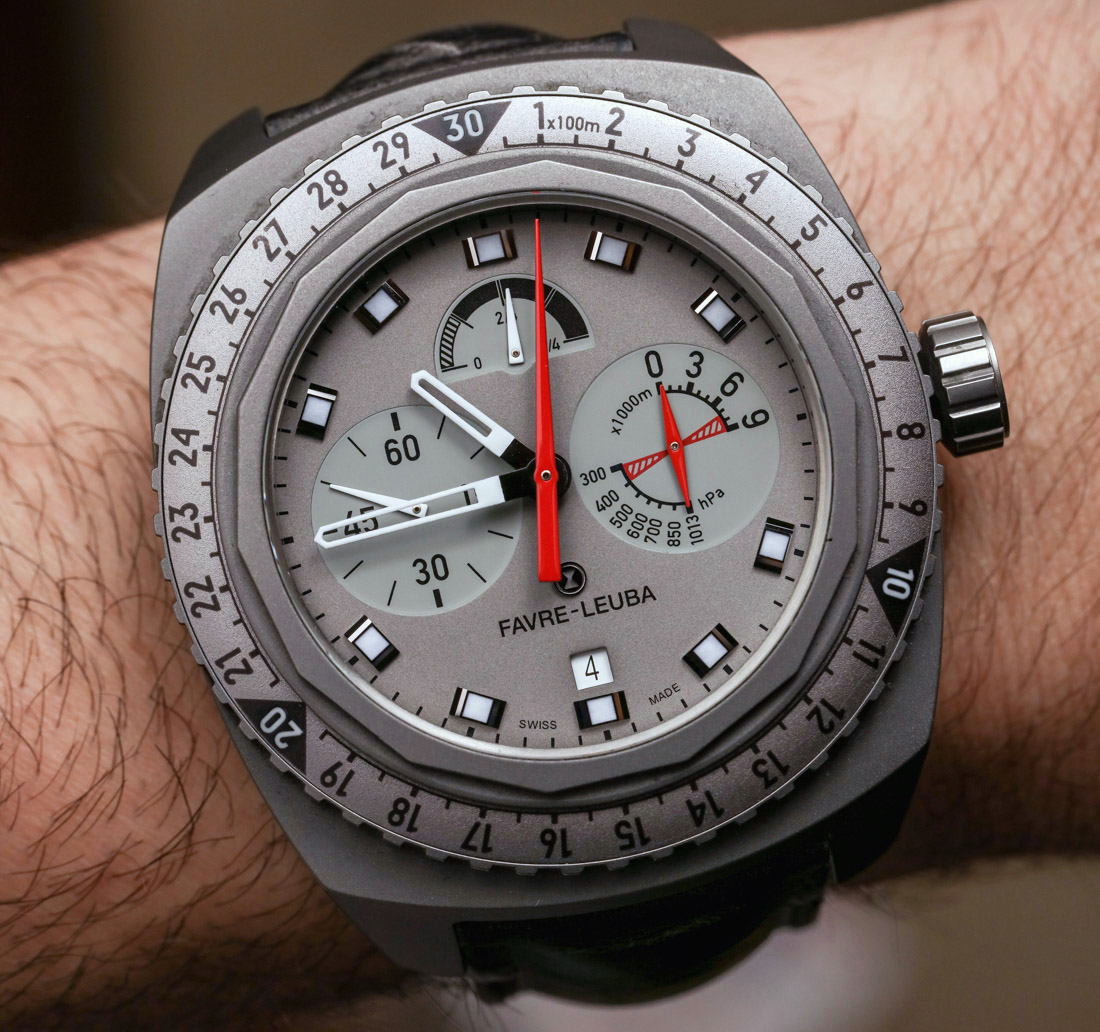
Assuming you currently want to track your altitude, the Raider Bivouac 9000’s dial is very easy to understand. The two red hands are responsible for indicating the altitude on two scales. The smaller subsidiary seconds hand on the right-hand side of the dial measures two things. First it indicates current altitude in thousands of meters (up to 9,000 meters – hence the name). The other side of the hand is cleverly designed to offer a basic (not very precise) indication of the barometric pressure. The larger, central red hand indicates a more precise read out of up to 3,000 meters. This can go around the dial three times to fully get to 9,000 meters. A rotating bezel (with a printed aluminum insert) can temporarily track gains or losses in elevation that you might want to separately track during your climb or descent.
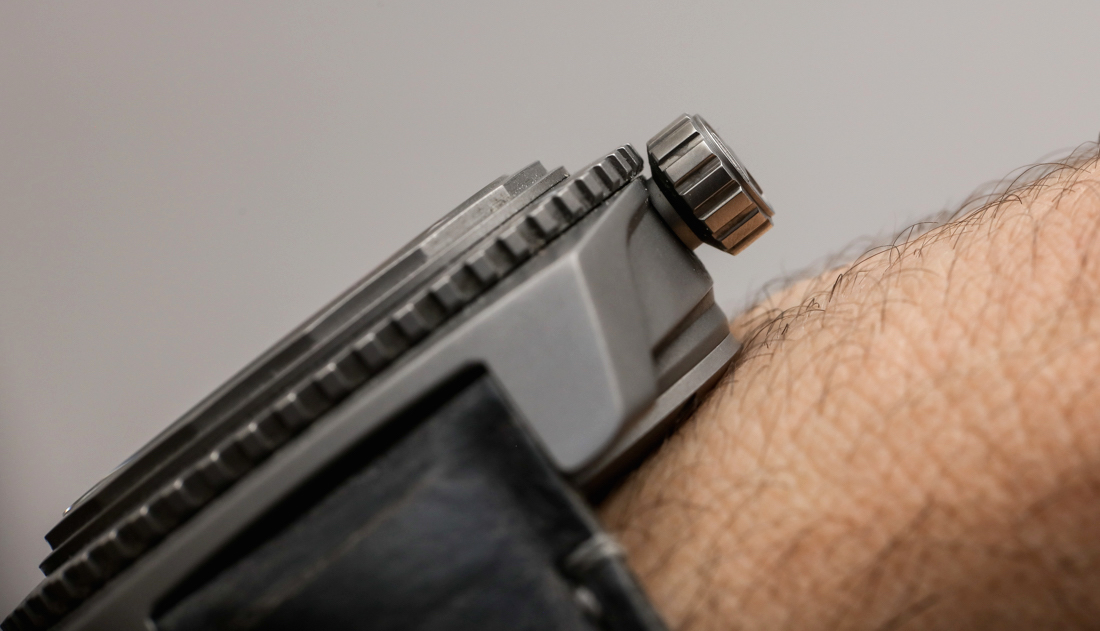
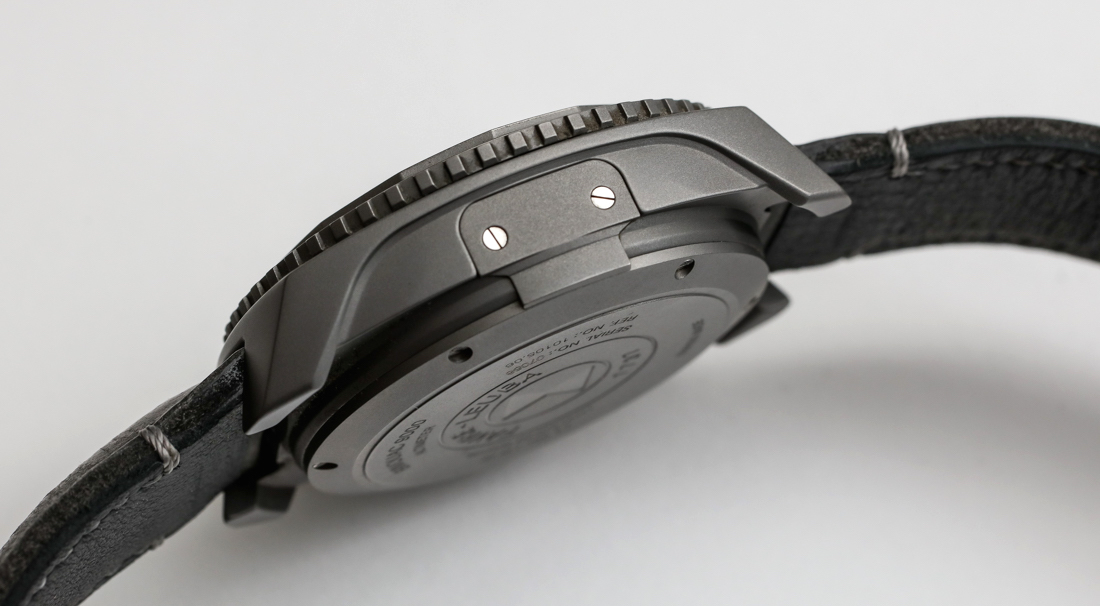
Also on the dial are hands for the time including a subsidiary second dial, a window for the date, and a handy power reserve indicator. This latter part is really important in my opinion because the Raider Bivouac 9000 has a manually-wound mechanical movement. I believe they would have preferred to include an automatic movement, but the placement of the aneroid capsule under the movement likely made using an automatic rotor a bit too complicated. At the least, the watch would have to be even thicker. As it is the Bivouac 9000 is 18.7mm thick.
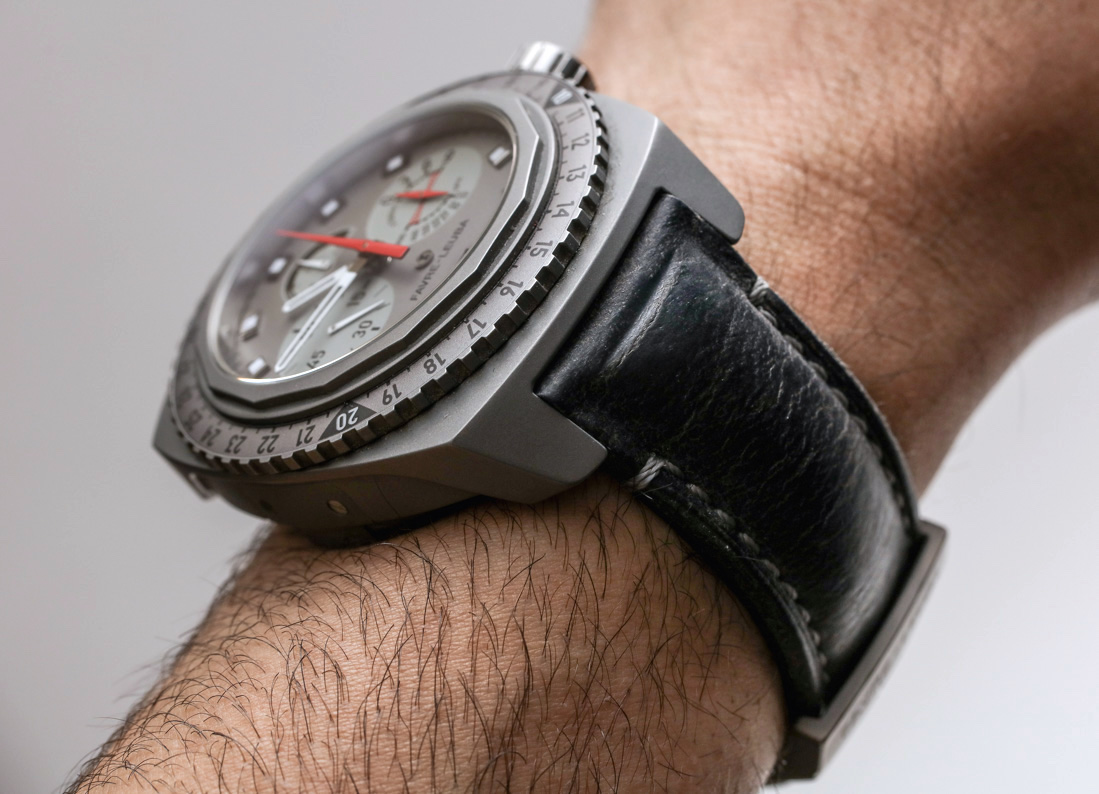
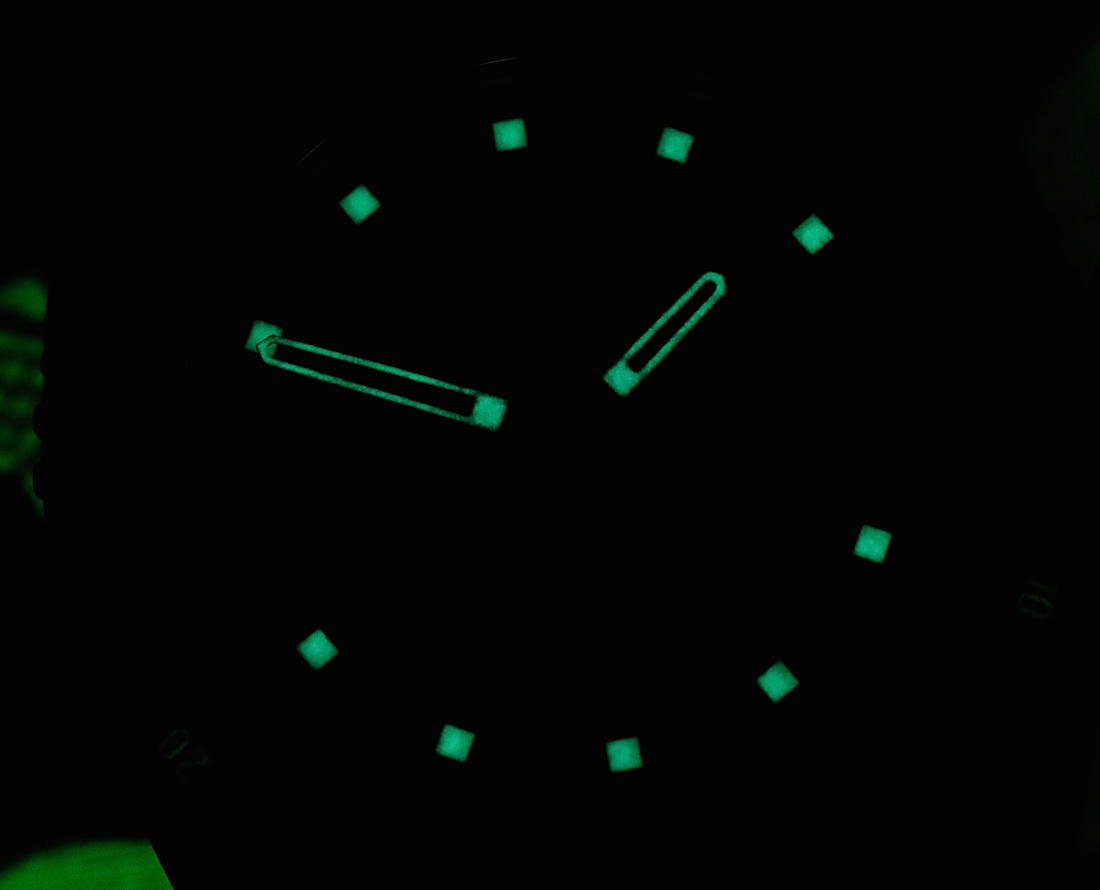
On the wrist the Favre-Leuba Raider Bivouac 9000 is comfortable when worn snug but isn’t at all a small watch being 48mm wide (and almost 19mm thick as I mentioned above). The lug-to-lug distance is about 57mm. The case is produced from sandblasted titanium which makes for a nice tool-style look. Favre-Leuba mimics the color and finishing of the titanium case with the dial color. That and the use of a similar color bezel (and matching strap) makes for a cohesive gray color look which I think is really appealing in a masculine tool watch sort of manner. Applied hour markers on the dial and the hands are all given Super-LumiNova paint. I like the hands and don’t mind that they are skeletonized – even though I don’t strictly feel that the hands needed to be skeletonized for this watch to have peak functionality.
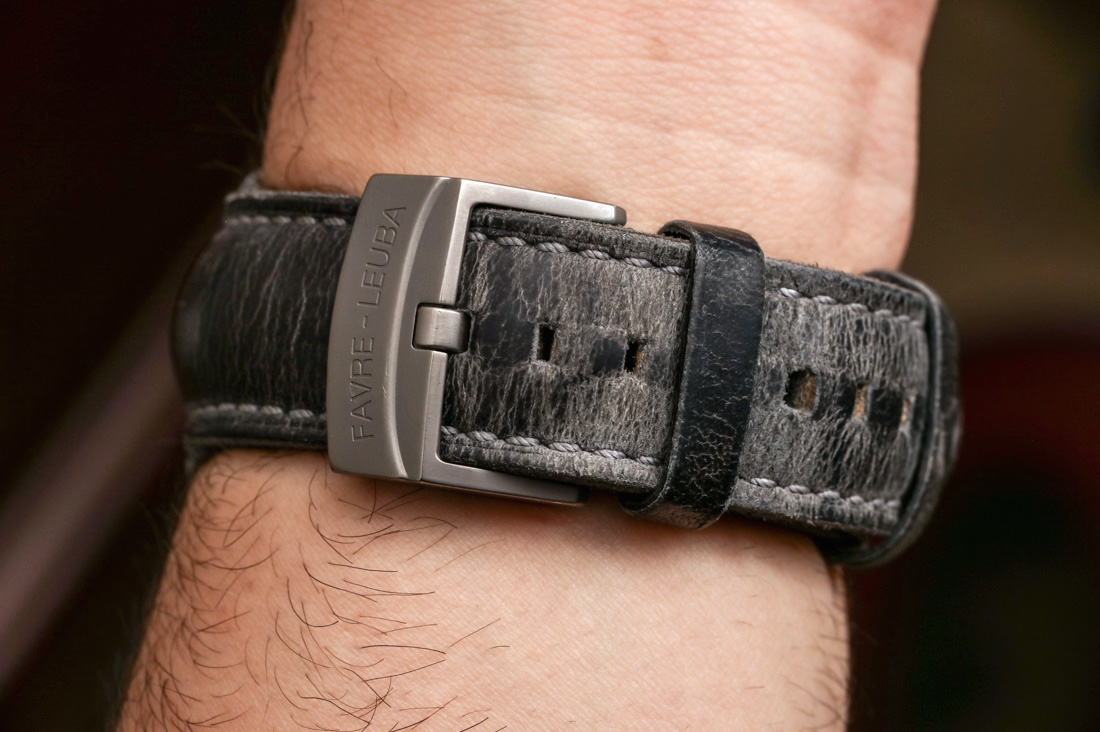
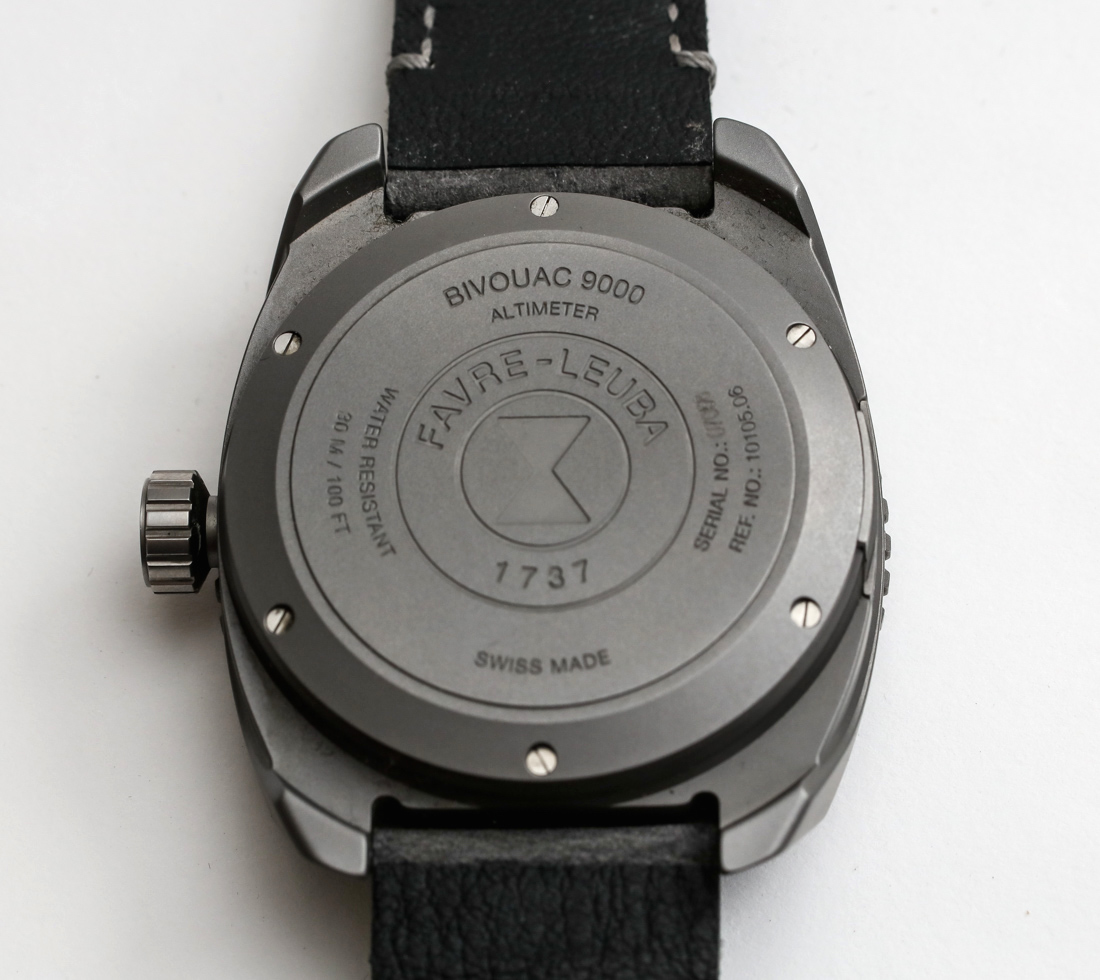
If you can pull off the size of this timepiece, its functional story and aesthetic style are compelling. I don’t know other watches that look quite like this, and Favre-Leuba does a nice job of combining modern construction with a semi-vintage aesthetic. On top of that, if you are included among those people who want/need a mechanical altimeter watch to take with you on serious climbs when knowing your altitude is important, there are few other options out there than the Favre-Leuba Raider Bivouac 9000.
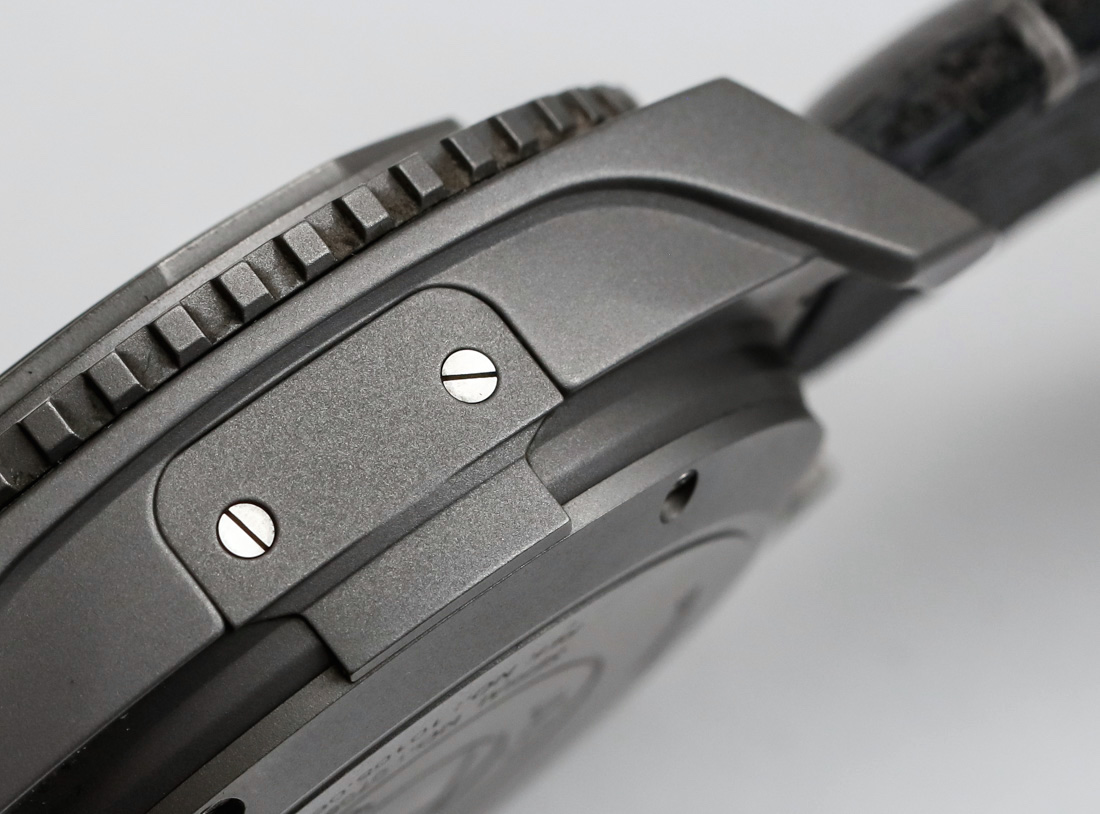
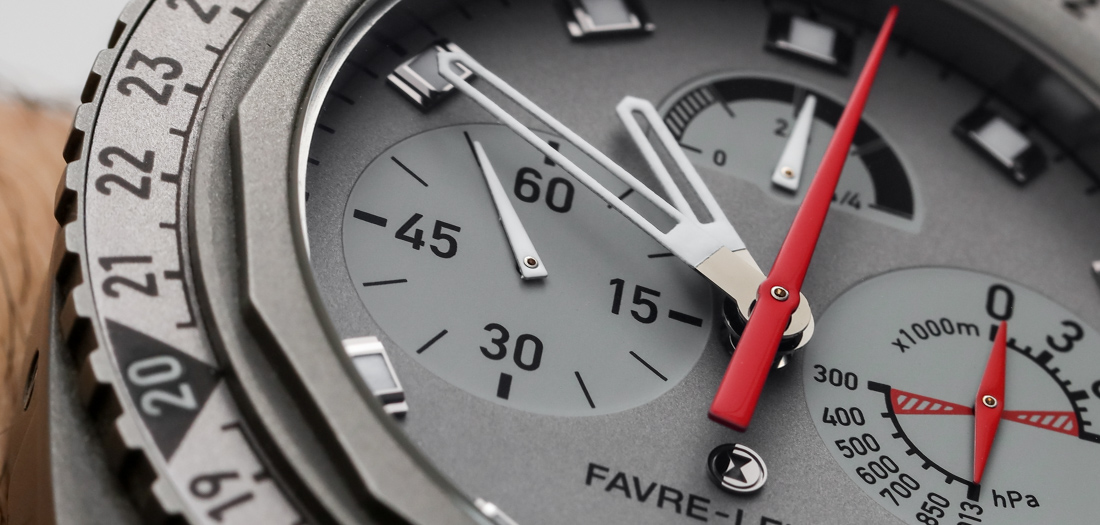
Inside the watch is the manually-wound Favre Leuba caliber FL311 movement that operates at 4Hz with 65 hours of power reserve. This uses a base Swiss Eterna caliber EMC 3903M, which has been specially modified for Favre-Leuba. Attached to the case is an attractive padded gray leather strap that wears in quite nicely. The strap is one of the nicest elements of the watch – I sometimes think brands should just sell these separately (it is a 24mm wide strap) by the way. Certainly a niche watch but in a good way, the Favre-Leuba Raider Bivouac 9000 is a welcome addition to an otherwise crowded market of quirky high-end sport watches. Apparently, we just can’t get enough products like this, so remember this one the next time you are going up high enough (on foot) where the altitude could affect your health. Price for the Favre-Leuba reference 00.10105.06.45.45 Raider Bivouac 9000 watch is 7,500 CHF. favre-leuba.com
Necessary Data
>Brand: Favre-Leuba
>Model: Raider Bivouac 9000 reference 00.10105.06.45.45
>Price: 7,500 Swiss Francs
>Size: 48mm wide, 18.7mm thick, 57mm lug-to-lug distance
>When reviewer would personally wear it: As a back-up altimeter and timing device when climbing anywhere cold or when ascending over 1,000 meters during a climb.
>Friend we’d recommend it to first: Large-wristed climbing enthusiast or anyone with at least some regular interest in knowing their current altitude.
>Best characteristic of watch: Very effective and focused designed makes this an excellent tool watch (for what it is). Comfortable despite size. Design that doesn’t immediately make you think of other products. Nice strap.
>Worst characteristic of watch: Case size could easily make it too large for many wrists – at least if worn on a regular basis. Large persistent altitude hand can be distracting to view on a regular basis if you aren’t actively changing altitudes.

